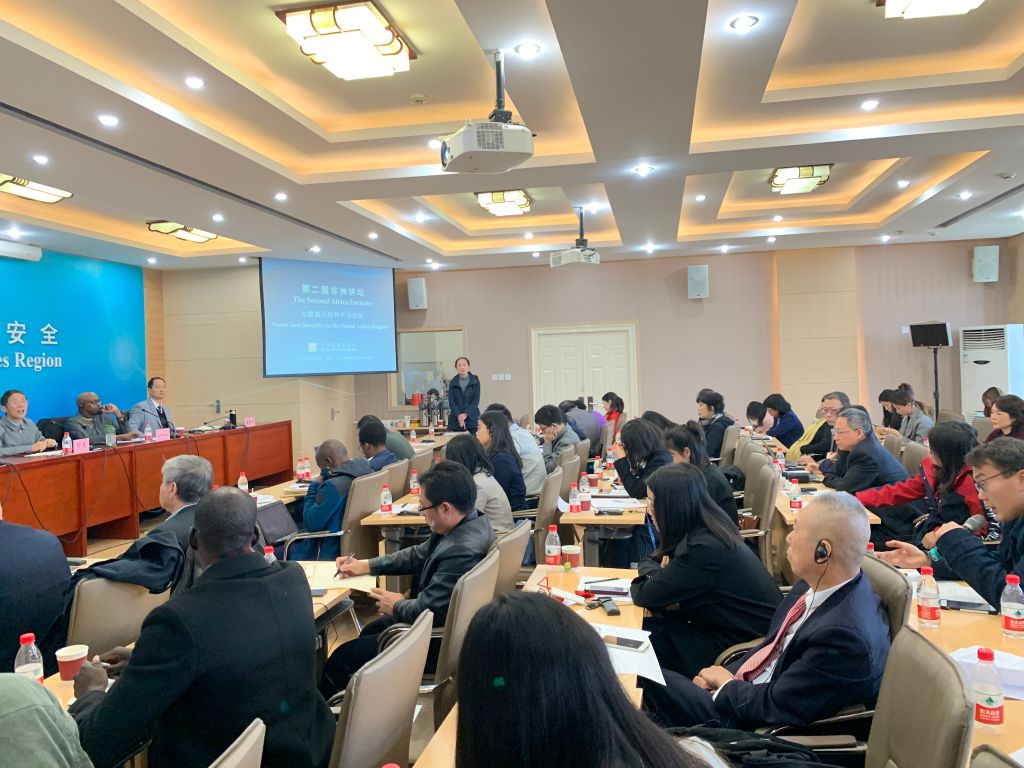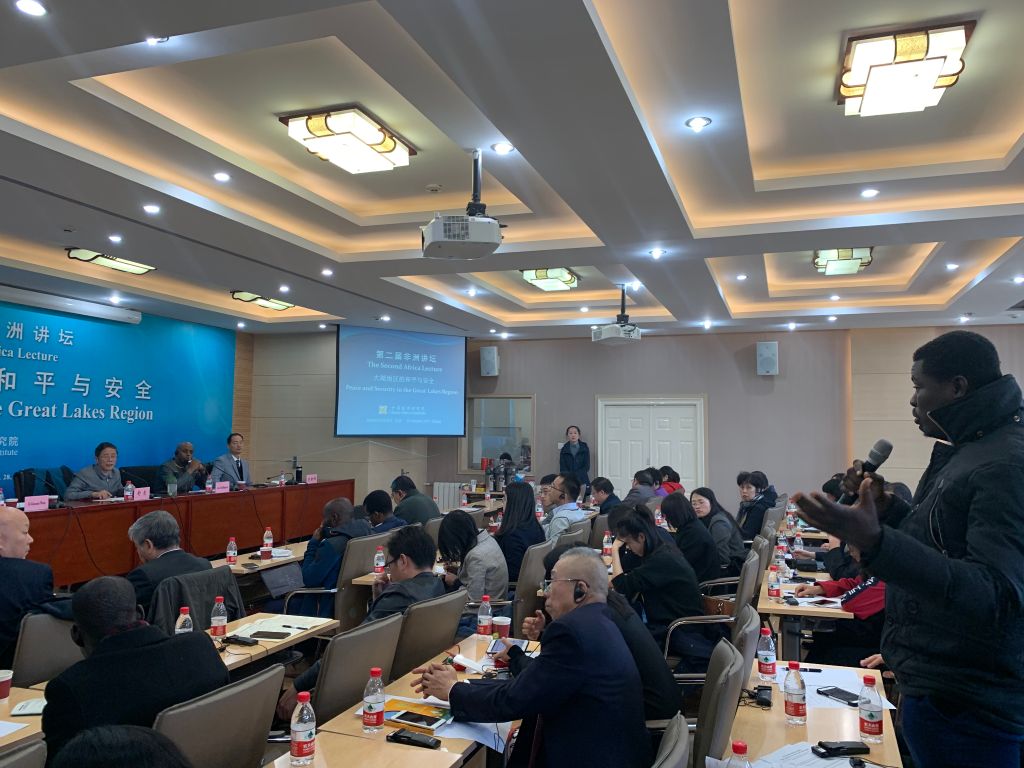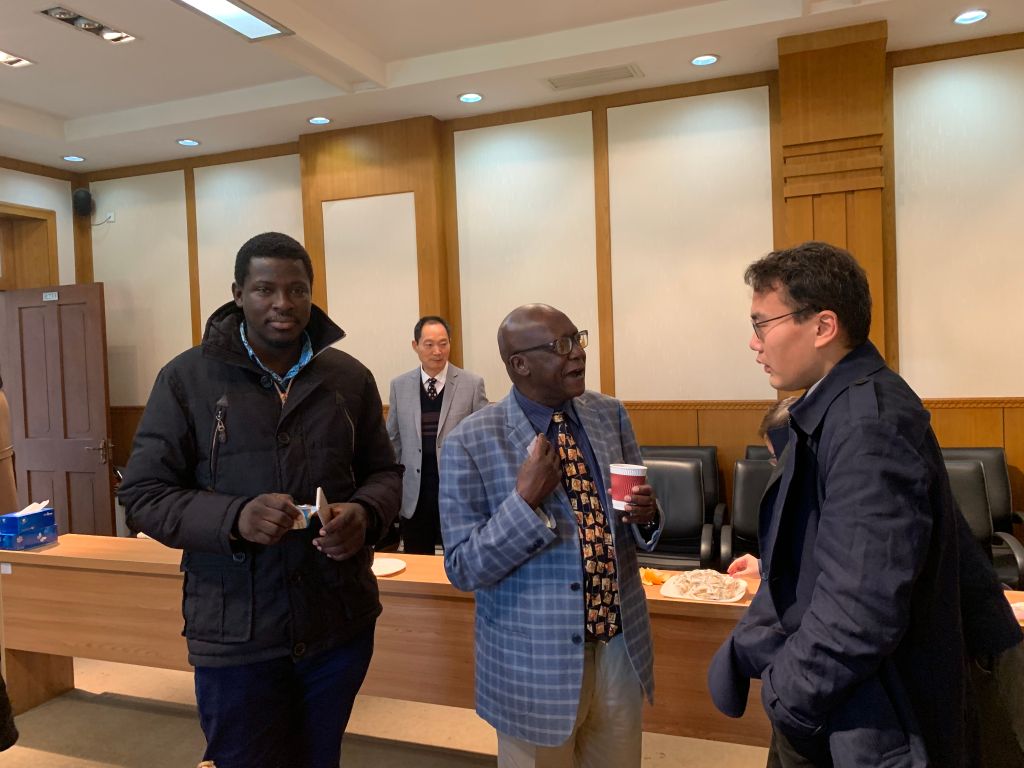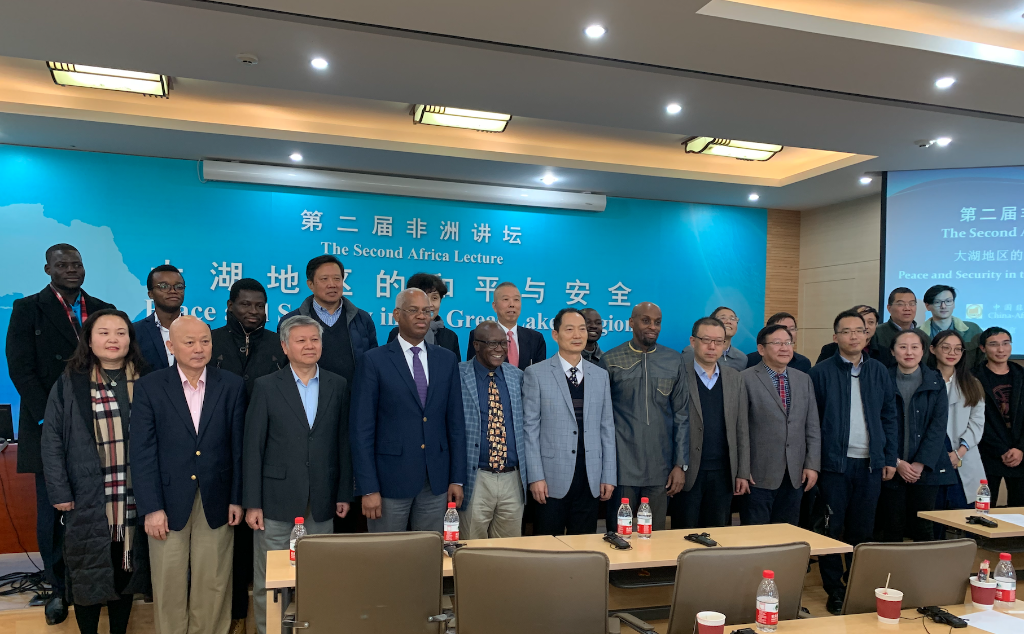PEACE AND SECURITY IN THE AFRICAN GREAT LAKES REGION
ORGANIZED BY CHINA-AFRICA INSTITUTE.
BEIJING, 2019-10-28
1.Background
China has deepened its interest in peace and security in the Great Lakes Region so as to find a lasting solution to the many conflicts in this area.The African Great Lakes are a series of lakes constituting the part of the Rift valley in and around the East African Rift Valley. They include Lake Victoria and Lake Tangyayika. This total constitutes about 25% of the planet's unfrozen surface fresh water. The large rift lakes of Africa are the ancient home of great biodiversity, and 10% of the world's fish species live there.
Countries in the African Great Lakes region include Burundi, the Democratic Republic of Congo, Kenya, Malawi, Rwanda, Tanzania and Uganda.
The Great Lakes area, where colonial era borders cut through ethnic groups, has in the last 20 years been a crucible of conflict that has launched multiple uprisings and invasions. The United Nations, the United States, and several European countries have special envoys or representatives to the Great Lakes region. Local populations recently have denounced the presence of these 'agency' groups like the UN, saying they often do not actually prevent attacks or protect local villages, but are posted for whitewashing purposes or to safeguard western envoys, citizens and their business interests. They have also been accused by both local and other African nations of participating in human rights abuses and rampant sex-based exploitation and trafficking.
China has shown great interest in helping to bring a lasting solution to conflicts in these areas.
2.Objectives
The objectives of the lecture among others was to:
Ø Describe the peace and security situation in the great lake region so as to enable china play a key role in resolving the conflict situation.
Ø Provide a platform for African scholars on the African affairs, instead of the narrations and judgments from any other party outside Africa.
Ø Explore a new channel of direct exchanges between the African and Chinese think tanks and positively provide the talent and intellectual supports to the building of a stronger China-Africa community with a shared future.

3. Lecture 1
The first lecture was given by Prof. Gilbert M. Khadiagala, Professor for International Relations, Wits University, South Africa. It was chaired by Prof. Li Xinfeng, Executive Vice President of China – Africa Institute. The topic for his lecture was “The security and Governance Challenges in the African Great Lakes Region”. He outlined four legacies that has great implications for peace and security in the Greak lakes region. They include;
o Weak states and weak institutions,
o ethnic communal violence and genocide,
o armed insurgencies, refugees and interstate conflict
o Weak regional institutions and regional integration
He observed that regional institutions have not played dominant role in resolving the conflict because they are too many and ineffective. This creates a window for china to move in to resolve the conflict.
In his final submission, he outlined the following as possible solutions to the conflict
Ø General national reconciliation
Ø Decentralize government
Ø Poverty alleviation

Lecture 2.
The second lecture was delivered by Dr. El- Ghassim Wane, former Assistant to secretary General of UN peacekeeping mission and chaired by Prof. Li Xinfeng . The topic for his lecture was “Africa and the International perspective on the peace and security of the African Great lakes”. He revealed that international bodies such as UN have played significant role in ensuring peace in the great lake region. The striking recommendation for china’s role is to empower Africa institutions so they can resolve the conflict and not to directly go in to resolve the conflicts themselves.

Lecture 3.
The third lecture was given by Dr. Jean –Paul Kimonyo, President Advisor of Rwanda and chaired by Ambassador Shu Zhan, Senior Researcher at the China Foundation for International Studies. He lectured on the topic “Matter of concern and for optimism, an emerging normal in the Africa Great lakes region? He enumerated many positive strides that Rwanda has made in resolving the conflict. He suggested trade as important means of resolving the conflict in the great lakes region and Africa as a whole.

CWAS DELEGATION
CWAS Delegation was led by Prof Zhao Shuroung accompanied by three other PhD students
1. Prof Zhao
2. Kwame Simpe Ofori
3. Matthew Quayson
4 . Chen Xianle